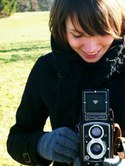Research Area 4: Visual and Material Culture Studies

On the basis of the interests and projects of the RA’s members, a specific semester (or annual) topic is developed at the beginning of each term. This topic is, however, apprehended as a flexible, overarching theme, that can be extended and transformed as the semester unfolds. The interdisciplinary discussions of the group are enriched by theoretical texts, which are equally selected jointly. Additionally, we regularly organize workshops, masterclasses and conferences by guest lecturers and/or members of the GCSC that provide further stimuli and insights into the RA’s research profile and the specific projects of our members. It is our aim to encourage our members to bring in their particular research interests whenever possible. Thereby, we enable our members to look beyond individual fields of research, to engage in an interdisciplinary dialogue, to acquire theoretical and practical knowledge as well as to connect with other researchers in the field of visual and material culture. The Research Area Visual and Material Culture Studies understands itself, thus, as an interdisciplinary and open research group that welcomes and encourages researches from different academic backgrounds to participate and contribute to the understanding, conceptualization and analysis of visual and material cultural practices.
Current research focus and activities
The research focus of the last two semesters was on the exploration of regional cultural phenomena in the field of visual and material culture. This idea began last year during a joint visit to the Giessen Art Trail. Which we used as an opportunity to have a "real" encounter during the pandemic. Since then, we have visited various cultural institutions, such as the theater, the Kunsthalle, the Mathematikum, and so on. The focus was always to look at the various cultural offerings from a new "post-corona" perspective. The following questions in particular were discussed:
- what changes occurred in the cultural offerings before, during and after the pandemic?
- what differences can be identified before and after the pandemic?
- to what extent has the aesthetic experience changed and why?
- In which areas of cultural events did a significant change occur and how did recipients react to it?
In October 2022, we will relinquish our positions as speakers and will be happy to see members of the new cohort take this on.
Upcoming Events
- Online Workshop
Activities during the academic years 2016-2020
Since the winter semester 2016/17 our work particularly focused on the challenges of working interdisciplinary in the broad field of visual culture. Coming from different academic disciplines (such as art history, literary studies, cultural studies, media studies, political science, history and sociology) our discussions aimed at identifying and reflecting the different kinds of knowledge underlying our specific disciplinary approaches and their relations to visual practices. Sessions were dedicated to the discussion of theoretical and methodological frameworks in the form of an inter- and trans-disciplinary dialogue. Of particular interest were issues of the political dimension of the visual and of the migration resp. distribution of images on a global scale. A Key Note Lecture and Masterclass with Prof. Bärbel Küster (University Zürich) set a particular focus on oral history and dialogic principles within visual culture studies. An overview over the activities in collaboration with other institutions and researchers you see below. Beside this network focused activites we also frequently visit exhibitions in the region.
Activities 2018-2020
- 18 & 19 January 2018: Interdisciplinary Methodology Lab: Exploring Political Dimensions of the Visual (2 day Method-Lab, guest speakers: Dr. Gabi Schlag, Helmut Schmidt University Hamburg; Prof. Dr. Bojana Kunst, JLU Gießen; Prof. Dr. Sigrid Ruby, JLU Gießen; Dr. Sophia Prinz, European University Viadrina Frankfurt Oder; Prof. Dr. Greta Olsen, JLU Gießen)
- 24 April 2018, Key Note Lecture: Prof. Dr. Bärbel Küster (University Zürich): „Dialogic Principles in Cultural and Visual Studies“
- 25 April 2018, Masterclass: Prof. Dr. Bärbel Küster (University Zürich): „Approaches to Dialogic Principles from Theory and Practice in Culture”
- 24 May 2018, Masterclass: Dr. phil. Antke Engel (Institute for Queer Theory, Berlin) „Reading Visual Dynamics of Power and Desire: Queer Assemblages, the Strategy of Undisambiguation, and the Method of Engaged Ekphrasis”
- 2 July 2018, Workshop: Image – Archive – (Hi)Story: German Gazes upon East Central Europe, Herder Institute for Historical Research on East Central Europe – Institute of the Leibniz Association, Scientific Collections (Marburg)
- November 12-14, 2019, Renegotiating Minoritarian In_Visibilities, Interdisciplinary conference at the GCSC Gießen
- 16. Januar 2020: Guided tour and discussion through the exhibition "Wieso? Weshalb? Warum? Fragen an die Ethnographische Sammlung" at the Oberhessisches Landesmuseum Gießen
Former Research Focus and Past Activities
Learn more about our former projects and events here.
Collaborations and Partners
- Herder-Institut für historische Ostmitteleuropaforschung
- AG Museumskultur
- Moving Images AG
Active participants
- Alinezhadi, Ehsan
- Brockkötter, Philipp
- Freund, Julia (Dr. des.)
- Groholzsky, Astrid
- Hanauer, Taya
- Holderied, Laura (associate doctoral fellow from Oldenburg University)
- Ivasiuc, Ana (Dr.)
- Kargin, Fatma
- Klaassen, Oliver
- Lizarazo, Laura
- Ludwig-Ockenfels, Cathérine
- Marpert, Rebekka
- Ruckdeschel, Annabel
- Susa, David
- Scheidler, Melanie
- Stornig, Katharina (Prof. Dr.)
- Tiborra, Jana
- Wolf, Katharina
Contact
If you are interested in joining us, please get in touch with our current speakers:
- Jacky Sim (speaker): Jacqueline.Sim
- Richard Damian Vargas López (speaker): Richard.D.Vargas-Lopez
